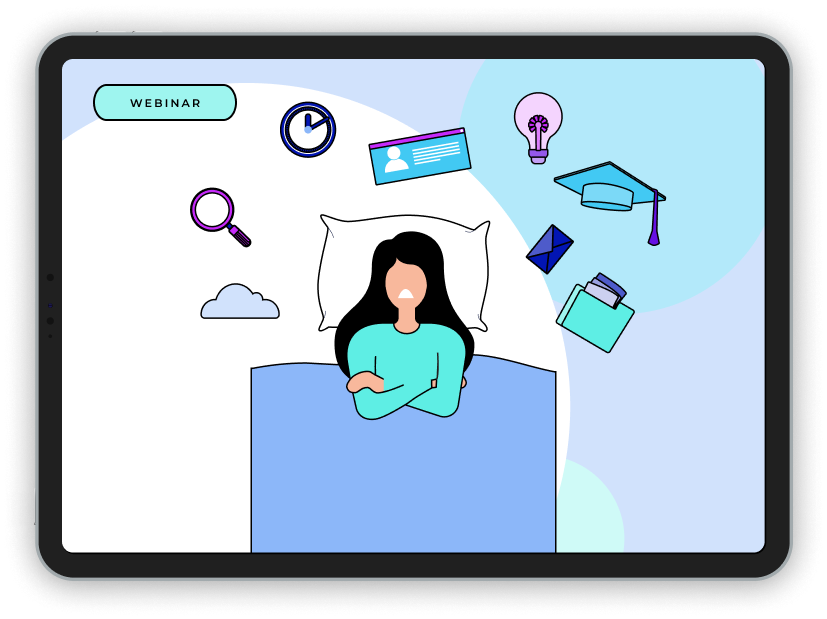Unlike setting a resolution for New Year’s, establishing educational goals is an almost guaranteed strategy to successfully advance your professional aspirations.
Educational goals can expedite how quickly someone will realize their career ambitions by creating actionable steps that yield actual results.
For organizations that seek to gain revenue and more by educating their clients, members, or employees, we’ve got suggestions for setting these goals that will help you surpass your 2023 goals.
Fortunately, our digital era has introduced innovative tools and platforms that make defining, pursuing, and achieving your organizations educational goals easier than ever…
The purpose of setting professional or educational goals
One of the best things about professional or educational goals is that you can decide how you want to use them. Having a goal shouldn’t overwhelm you or overly define your daily efforts.
In fact, professional goals are sometimes best when they simply lend direction to your efforts, creating a target, rather than a concrete destination.
Consider Bruce Lee’s take on goals:
“A goal is not always meant to be reached; it often serves simply as something to aim at.”
That may be and this approach might feel less daunting for those who are unsure of their career or what they ultimately want to accomplish.
However, if you’re looking to create a big change, or achieve something truly measurable or meaningful, be mindful of poet Bill Copeland’s words,
“The trouble with not having a goal is that you can spend your life running up and down the field and never score.”
Educational goals are useful vehicles that can either move us forward along our professional journey or help us arrive at a definitive destination, faster.
Either way, your career stands to benefit when you invest the time into imagining your educational goals and then integrating them into your professional plan.
How establishing educational goals benefits your career
Creating or choosing specific professional or educational goals can help mark milestones on your professional journey. Maybe you’ll determine a series of smaller goals in pursuit of something larger, like a new license or certification.
If you reflect on what you’ve already achieved, you can identify the educational goals that got you to this point in your career. For instance, you graduated high school in order to attend college. With your undergraduate degree in hand, you either entered the workforce or pursued an advanced or graduate degree.
For those who entered the workforce right away, you might consider whether a college degree or advanced graduate degree would propel you forward in your career, depending on your industry. If it would, you can establish that goal and determine a reasonable timeframe to achieve it, relative to your other professional and personal commitments.
By achieving more knowledge in your field, whether through ongoing continuing education opportunities, or securing a new professional license, certification or degree, you demonstrate that you’re serious about your career and committed to defining yourself as a trusted authority within your industry.
This not only looks impressive to potential employers by setting you apart from your colleagues, it also makes you an asset to organizations who will benefit by your advanced expertise. Not to mention your customers or clients who will automatically feel more trusting of your knowledge and experience compared to someone with less.
Additionally, you’ve heard the expression,
“If you’re the smartest person in the room, you’re in the wrong room.”
This is true when it comes to surrounding yourself with like-minded people who will automatically elevate you by constantly pushing existing boundaries, raising the bar of what can be done, learned, and achieved in your field.
By being the smartest person in the room, you essentially put a cap on what you can learn, which limits your potential.
To recap, by defining your professional or educational goals, you are poised to:
- Be more knowledgeable in your field
- Potentially go farther on your professional path, which could mean securing new roles and positions that align with more lucrative compensation and opportunities
- Network and learn from smarter voices in your field, which will strengthen your voice in the process
Whether you feel excited to determine an educational goal or overwhelmed by where to start, we’ve got some examples to help organize your thinking and commit to a goal that matters to you.
Educational goals come in all shapes and sizes
Whether you’ve got your eyes set on the prize (read: promotion) or you simply want to keep current with industry developments, there is an educational goal with your name on it.
Some educational goals are more holistic, meaning they are about how we do things, rather than what we can achieve.
Consider the following list of educational goals designed to create positive change…
- Expand your existing network: Whether that means becoming more active on professional networking platforms like LinkedIn or adding more in-person networking events to your calendar, connecting with colleagues and industry leaders is one easy way to ensure that you’re in the right room when it comes to important conversations that impact your profession.
- Conquer the art of communication: This could include crafting more polished emails, prioritizing listening over speaking, or simply paying closer attention to your interactions with those around you. Strong communication skills are always trending, no matter what shifts or innovations your industry experiences.
- Tackle time management: Maybe this means signing up for workshops about productivity or how to finally stop procrastinating. It could even just be reading professional articles about time management and tips to help you do
- Teach: You likely already have skills and tools in your toolbox that could benefit others. By running a workshop or teaching a class on a specific skill or topic, you establish your expertise and position yourself as a trusted resource to a new network of professionals. You can also add teaching as a skill on your resume, highlighting the courses or content you’ve created.
- Hone in on healthier habits: For so many of us, this just means getting more sleep, establishing an exercise routine or taking mindful breaks from social media or screens in general. Determine what depletes you and set a goal to create a new habit that will empower your day.
- Evaluate the competition: Researching what your competitors are doing is a great way to learn what to do and, equally importantly, what not to do. Scroll social media and take a look at the types of content they’re sharing and how that content is being received in order to sharpen your own posts, articles, and offers.
- Embrace your inner bookworm: Whenever possible, read as much as possible, not only about your specific field, but about professional skills and personal or self-help strategies. Even just being up to speed on the latest NY Times bestsellers or ensuring that you’ve read at least ten titles considered classic literature will provide you with more interesting conversation fodder at your next networking event.
- Polish your public speaking skills: As the number one fear for so many people, public speaking is an oft-ignored and neglected skill. However, we’ve all been in the presence of a great public speaker, someone who is able to hold an audience’s attention, entertaining them while imparting wisdom. Don’t assume these people were naturally born with a gift for oratory. Public speaking can be learned and can be a skill that advances your career because you have the courage to overcome this very common fear and set yourself apart from the crowd.
- Enhance your organizational abilities: For anyone who struggles with organization, you know that it can negatively impact your day in major ways. From appearing distracted or flighty to losing serious time looking for anything from important documents to car keys, a lack of organization can be costly. Committing to a better system — whether digital or old-school paper planner style — will give you back time and better control over your day.
- Feature a new skill on your resume: While teaching is a great resume bullet, so is learning a new skill that you can feature as part of your professional portfolio.
- Become a better team player: Working on your interpersonal skills and even skills like organization and time management can make you a better team player, which elevates your collaborative power and performance.
- Commit to continuing education: No matter what, making a commitment to continuing education, being curious about the world around you, will impart new knowledge, networks, and opportunities you might have otherwise missed.
Connecting with the right partner who understands your educational goals is central to advancing them — and that’s where we come in…



